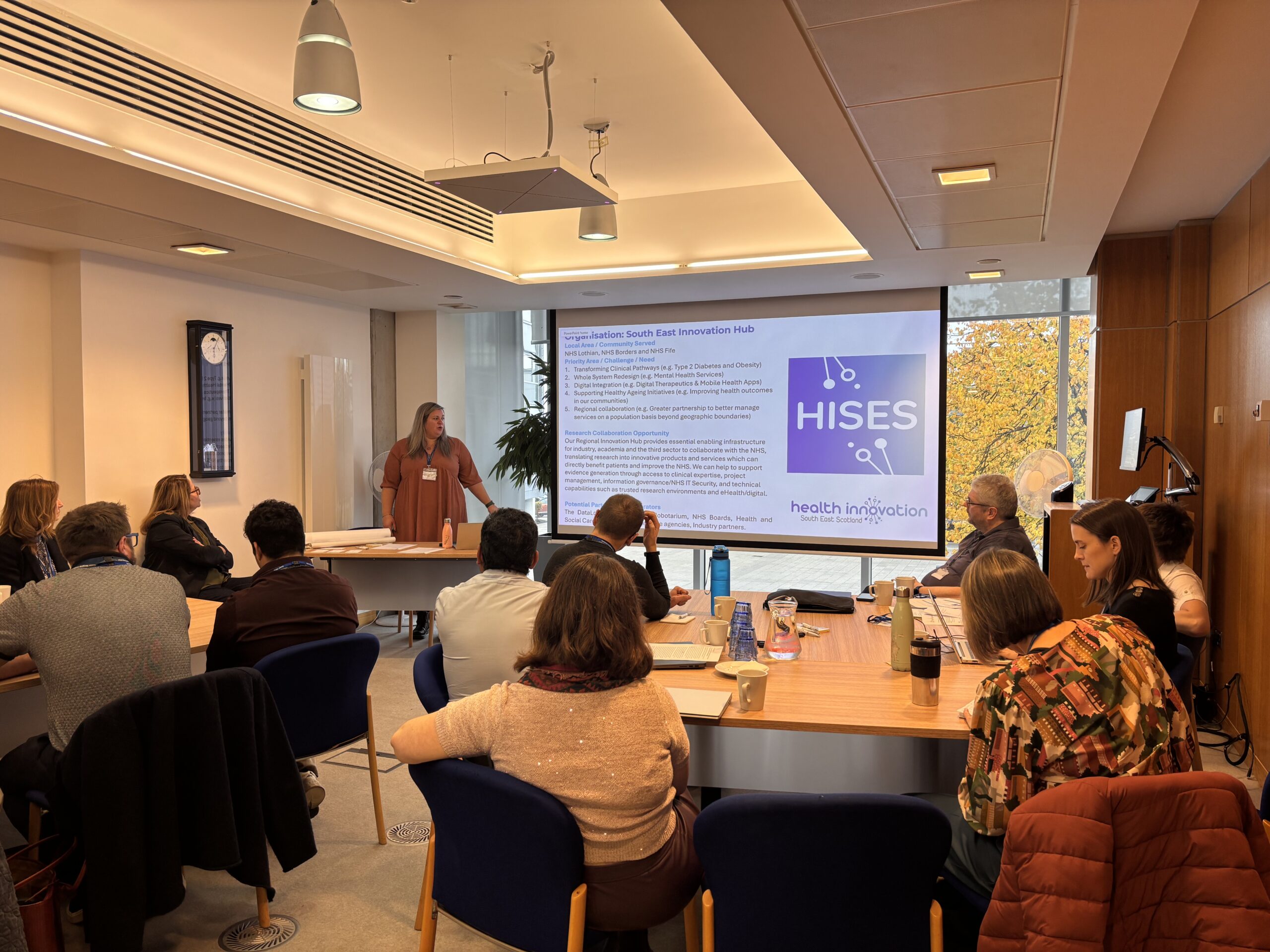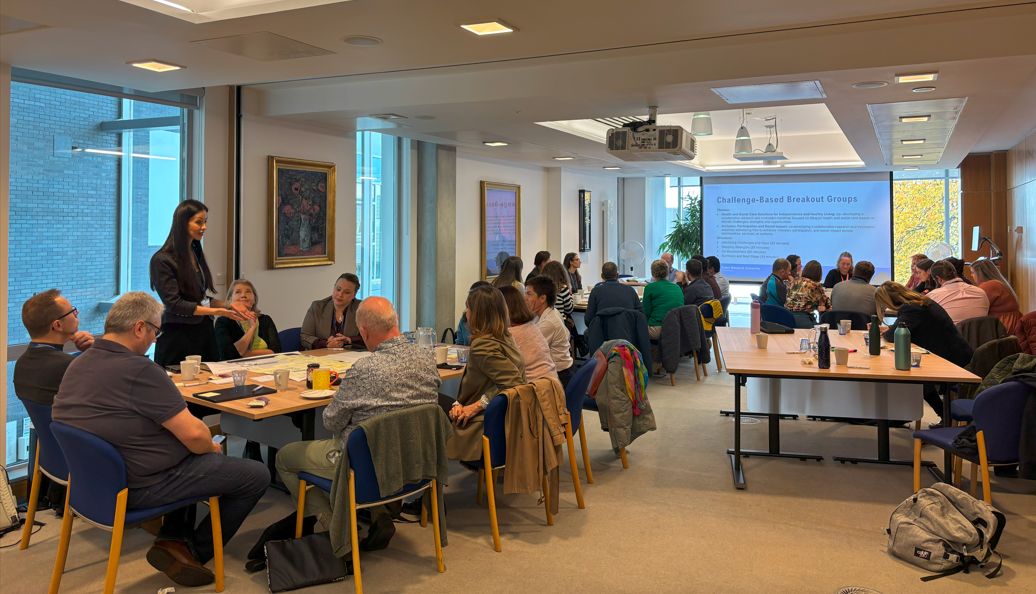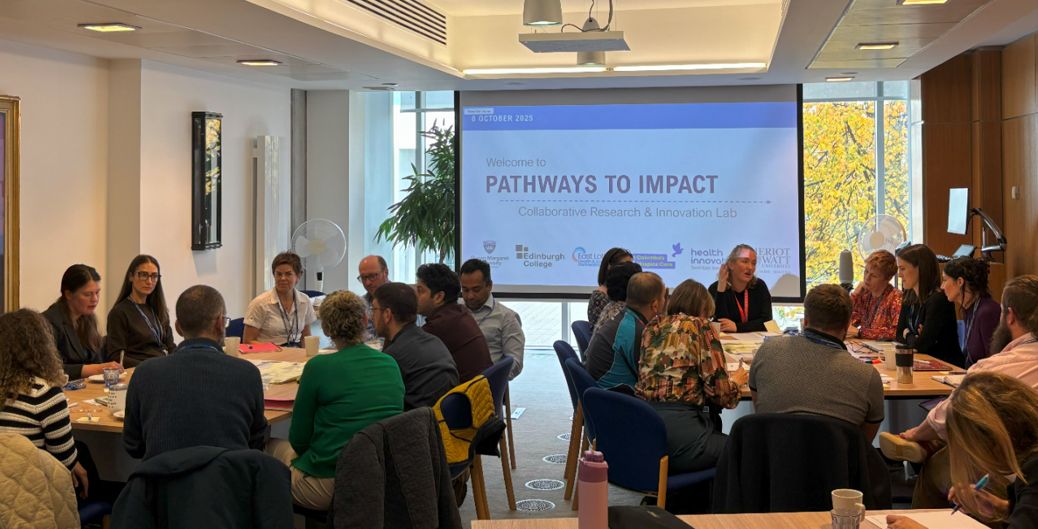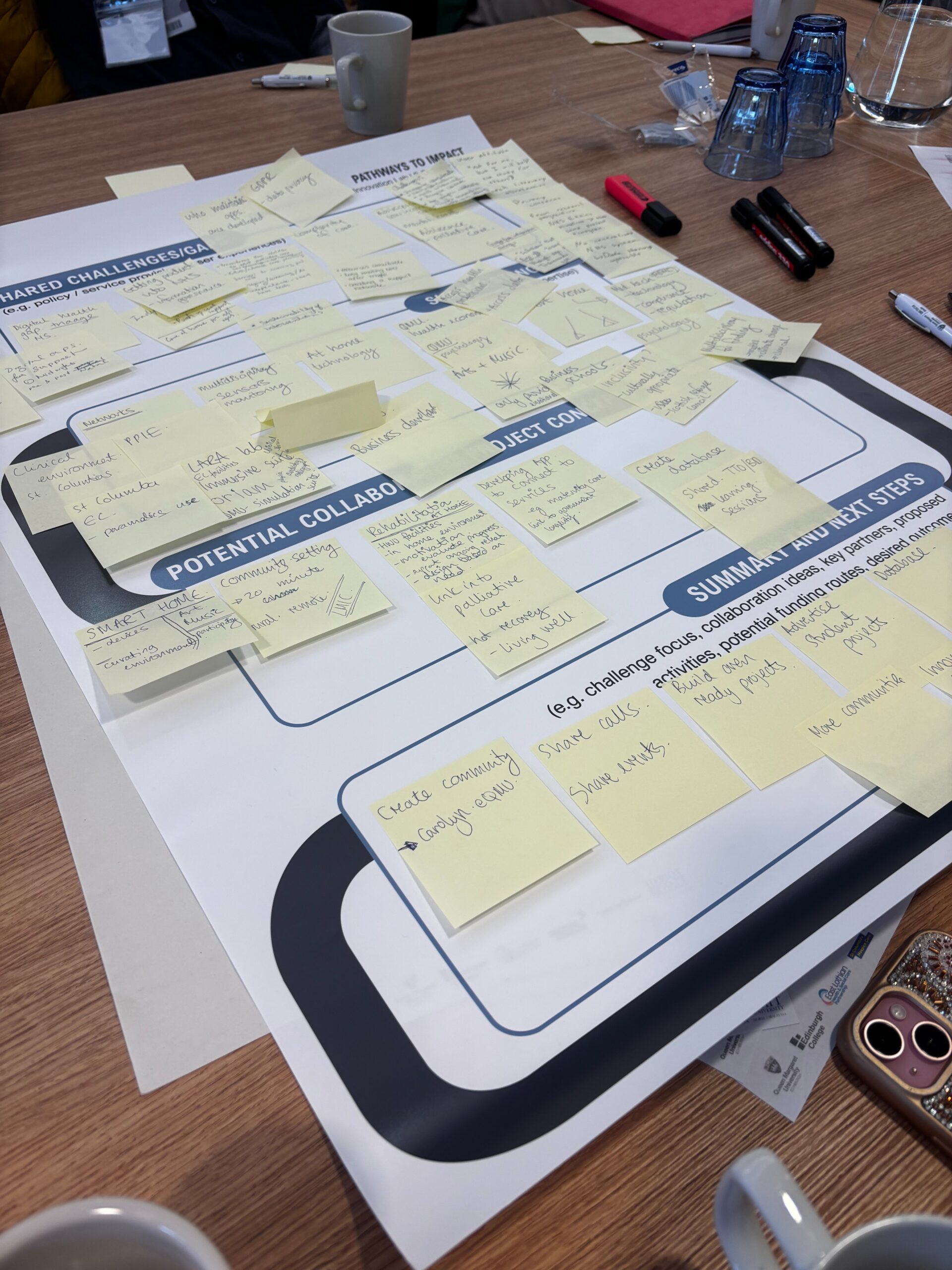Pathways to Impact – Collaborative Research & Innovation Lab
Researchers, innovators and regional partners from across Lothian gathered at Queen Margaret University (QMU) for the ‘’Pathways to Impact: Collaborative Research & Innovation Lab’’, a joint initiative between Queen Margaret University and Heriot-Watt University’s (HWU) Global Research Institute in Health and Care Technologies.
The event brought together academics, health and social care professionals, third sector charities and innovation leaders to discuss the co-design of new collaborative research pathways addressing some of Scotland’s most pressing societal challenges. This ranged from healthy ageing and independent living to inclusion, digital transformation and sustainability in care.
Building Pathways from Research to Real-World Impact
Opening the session, Dr Sylwia Górska, Research & Knowledge Exchange Fellow at QMU, welcomed delegates and focused on action-oriented collaboration.
This was followed by a ‘’scene-setting’’ panel with Professor Sara Smith, Dean of the School of Health Sciences (QMU), Professor Robert Thomson (HWU) and Eirini Lekka, Research Projects Manager (HWU), who outlined the government-led research and development priorities and the growing need for inter-university and cross-sector partnerships.
From Challenge Sparks to Collaborative Action
The morning’s ‘’Challenge Sparks’’ session showcased regional challenges and collaborative opportunities presented by partners including:
- Health Innovation South East Scotland – advancing digital therapeutics, clinical pathway redesign and regional collaboration across health boards;
- East Lothian Health and Social Care Partnership – focusing on workforce digital skills, public education and early intervention measures;
- Edinburgh College – developing future-ready health and social care professionals through knowledge exchange with QMU;
- St Columba’s Hospice Care – exploring digital innovation in palliative care, from voice-activated technologies to virtual reality and digital art therapies.
Showcasing Cutting-Edge Research
QMU and HWU researchers also highlighted a series of groundbreaking collaborative projects, including:
- Vision-RF, a privacy-preserving radar system that monitors vital signs without physical contact, developed at HWU with NHS partners;
- OptoLoc, a photon-counting imaging system that makes feeding tube placement safer and faster, now entering clinical testing at the Royal Infirmary of Edinburgh;
- Right Person, Right Time, Right Care, led by QMU’s Professor Karin Diaconu, using participatory systems modelling to improve mental health service delivery;
- Specialised Footwear for Foot Drop, a QMU spinout project by the Health Design Collective, now progressing toward NHS adoption through NIHR i4i funding.
Funding Landscape and Future Opportunities
Participants explored upcoming collaborative funding opportunities exceeding £200,000 from major funders such as the NIHR i4i Programme, MRC Gap Fund and EPSRC, with a focus on decarbonising health systems, translational research and applied innovations that directly benefit patients.
Co-Creation and Next Steps
In facilitated breakout sessions, mixed groups of academics and regional partners co-developed innovation roadmaps for two overarching themes:
- Health and Social Care Solutions for Independence and Healthy Living
- Inclusion, Participation, and Social Impact
The session concluded with an ‘’Ideas Showcase’’ and reflections from Professor Smith who emphasised the event’s goal: “to turn shared challenges into collaborative opportunities, translating research into real-world solutions for people and communities.’’
We look forward to hearing more around the outcomes of the day and we will continue to have conversations on how we can collectively strengthen partnerships across the region.






